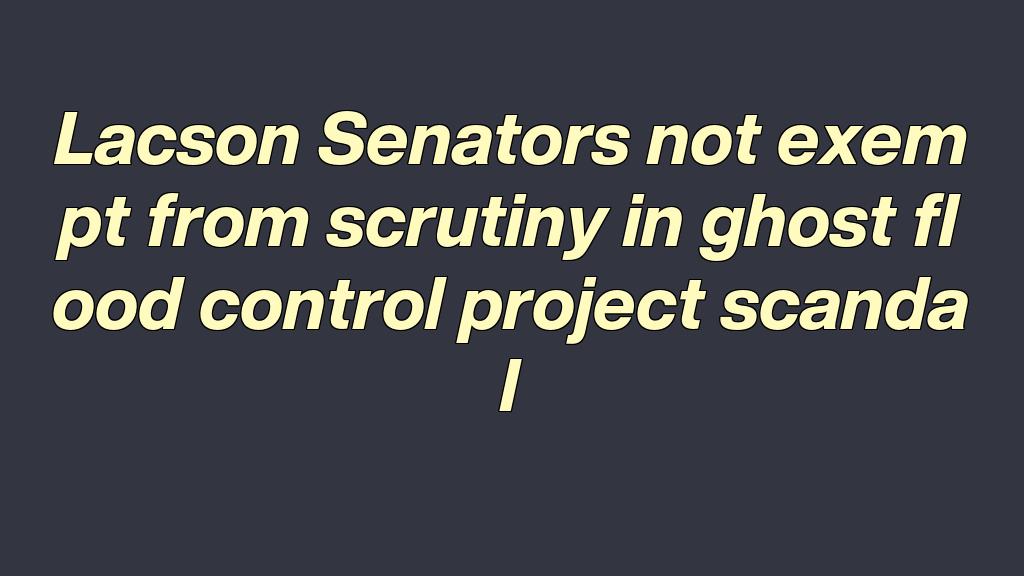MANILA, Philippines – Sen. Panfilo Lacson on Saturday warned that senators, along with members of the House of Representatives, may be complicit in the ongoing controversy involving anomalous and ghost flood control projects, reiterating his call for complete transparency in the national budgeting process.
Lacson said on radio that lawmakers from both chambers routinely propose budget amendments or "insertions"—a practice that, while technically legal, can be exploited to channel funds into questionable infrastructure projects.
“I’m not saying it’s only House members,” Lacson said in Filipino. “It’s possible that some senators have inserted funding for such projects and even profited from the 25 percent share typically given to the ‘funder’ or proponent.”, This news data comes from:http://redcanaco.com
Lacson: Senators not exempt from scrutiny in ghost flood control project scandal
Pressed further on whether senators might be tied to these fraudulent schemes, the senator replied, “There may be senators and House members who are connected to anomalous flood control projects.”
Lacson: Senators not exempt from scrutiny in ghost flood control project scandal
Lacson, a long-time advocate for budget transparency, refrained from naming specific individuals, stressing the importance of solid evidence. “It’s not right to name names without proof,” he said. “In my case, I only make findings public once they are backed by factual and verifiable information.”

- Lone bettor wins P86M in 6/42 lotto draw for Sept 6
- Malacañang calls plot to jail VP Duterte 'wild imagination'
- DPWH engineer denies role in Bulacan flood control ‘ghost projects’
- Trump withdraws Kamala Harris's Secret Service protection
- Isko files raps over demolition of sports complex
- Oil firms to hike pump prices Tuesday
- DOTr denies ordering shutdown of online selling platforms
- DPWH exec fired, 2 others face dismissal over flood control mess
- Firefighters arrested by US immigration officials
- Pope meets with Chagos refugees and delivers message about rights of the weak against the powerful